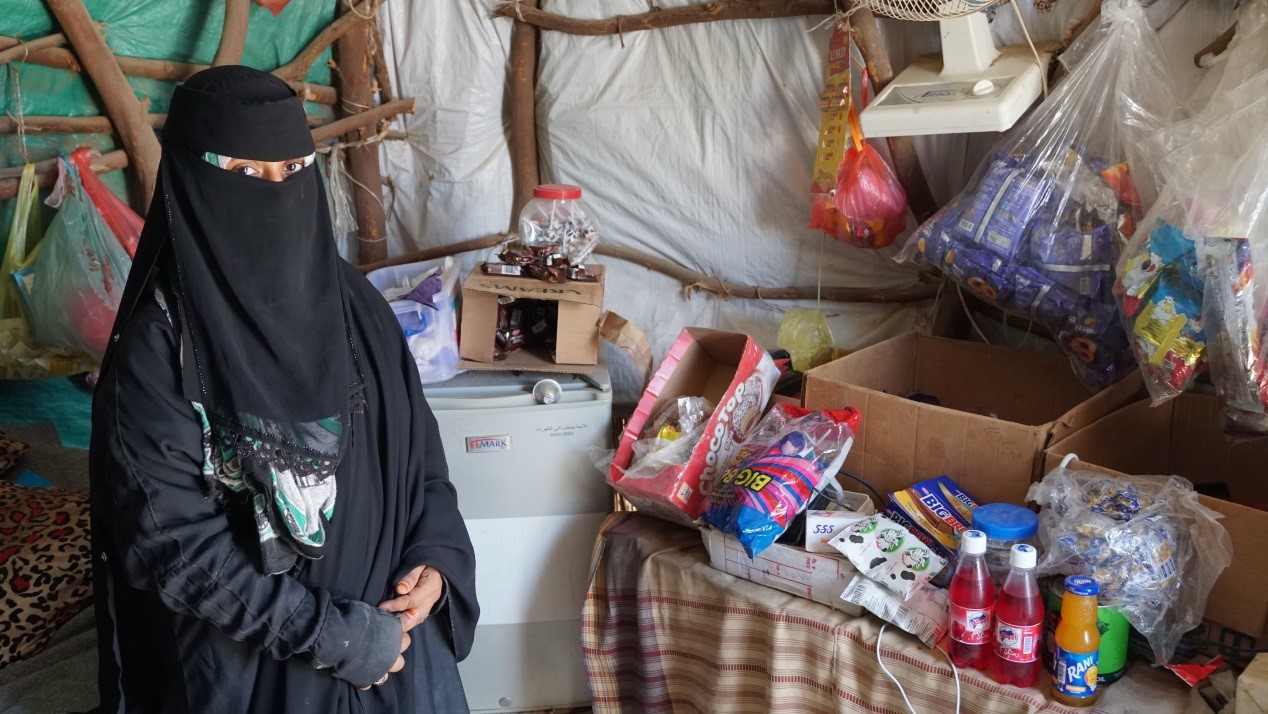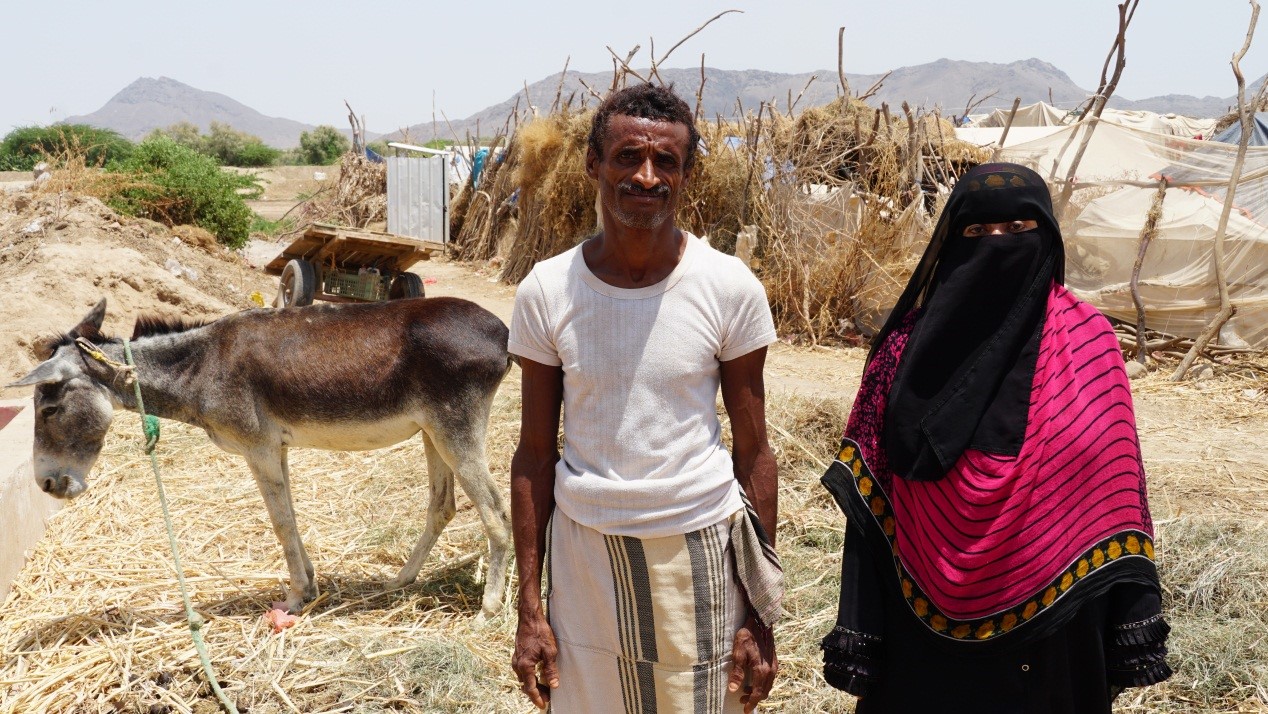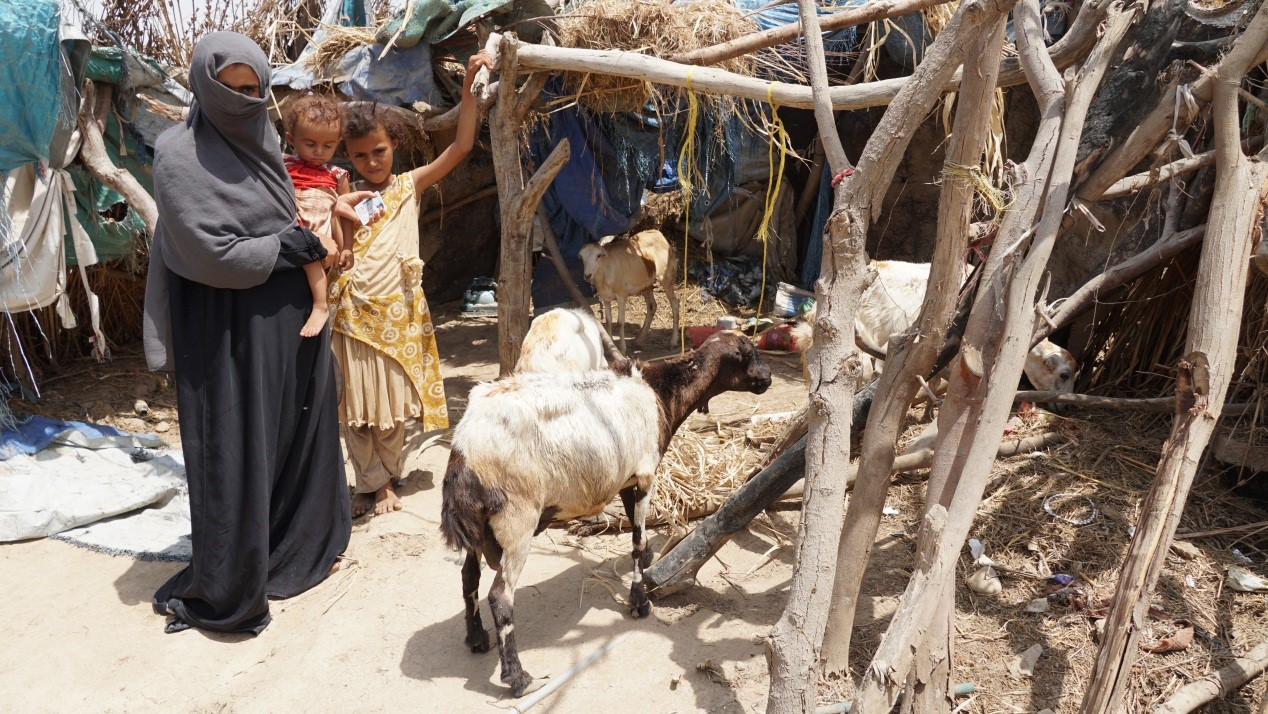The prolonged conflict in Yemen has devastated the country, destroyed livelihoods and left Yemenis facing a catastrophic humanitarian crisis. Many families have fled violence numerous times, looking for safety and a source of income. During the last six years, nearly four million Yemenis were forced to make the difficult decision of leaving behind their homes, as well as their possessions and livelihoods, and starting over again.
Sahar Abdo Ahmed is a 33-year-old internally displaced mother of four children from Zabid district, Hodeidah governorate in Yemen. Like many, she fled her home to seek safety in Zangbar district- Abyan governorate in Yemen due to the war that has been raging the country since 2015. “One night as we were sleeping peacefully, shells started falling on our village without any warning. We were terrified. With the clothes on our backs, we escaped and headed to Abyan governorate. We left everything we had, livestock, possessions, hard-to-earn assets, etc. and decided to save our lives,” says Sahar while reminiscing about the unforgettable night for her and all the locals in her village.
The journey of Sahar and her family was tiring and difficult. “Our house was destroyed and our livestock was killed. We lost everything we had been collecting for years,” she adds. She and her family reached Abyan governorate and started to look for an accommodation. Since they can’t afford renting a house, they live in a hut made of tree branches. Sahar and her husband started to work by collecting firewood and selling it to secure an income for the family, yet it was not enough to end the family’s suffering.


